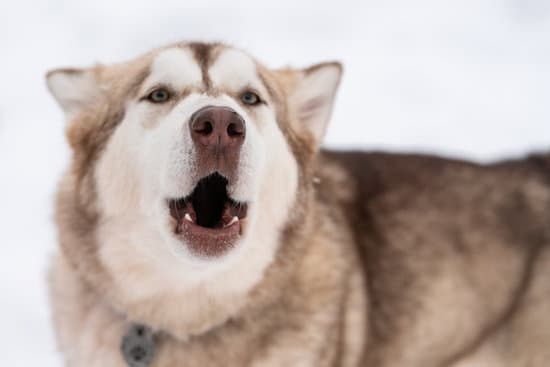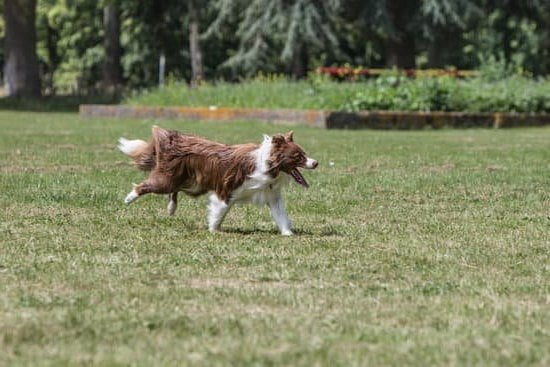House training a dog can be a challenging task, especially when dealing with an older dog. Many people wonder, “Can u house train an older dog?” In this article, we will explore the unique challenges and misconceptions surrounding house training older dogs. Understanding the background of older dogs and their specific needs is crucial in order to effectively train them for good behavior indoors.
One of the primary challenges of house training an older dog is overcoming ingrained habits and behaviors. Older dogs may have developed certain preferences and routines that make it more difficult for them to adapt to new potty habits.
Additionally, there are common misconceptions that older dogs cannot be successfully house trained due to their age or previous experiences. It’s important to address these misconceptions and understand that with proper guidance and patience, older dogs can indeed be successfully house trained.
It’s important to consider the individual background of each older dog when approaching house training. Factors such as previous living conditions, changes in routine, or medical issues can all contribute to a dog’s ability to be house trained. By understanding the potential behavioral and physical challenges that older dogs may face, it becomes possible to develop a tailored approach that meets their specific needs.
Understanding the Background of the Older Dog
House training an older dog can be a challenging and sometimes frustrating task. Many pet owners may assume that an older dog is set in their ways and cannot be trained to follow new habits, including using the bathroom outside or in a designated area indoors. However, it is important to understand the background of the older dog in order to effectively address any house training issues they may have.
One reason why older dogs may not be house trained is due to changes in their physical health. As dogs age, they may experience mobility issues, joint pain, or even incontinence, making it difficult for them to control when and where they use the bathroom. Additionally, older dogs may also experience cognitive decline, which can affect their ability to remember previous training or learn new behaviors.
Behavioral challenges can also play a significant role in the house training process for older dogs. For instance, if an older dog has previously been allowed to use the bathroom inside the house, breaking this habit and establishing a new routine can be more difficult than with a younger dog.
It’s also important to consider any potential anxiety or stress that an older dog may experience when undergoing house training, as these emotions can impact their ability to learn and adapt to new behaviors.
Understanding these background factors is crucial in developing a successful approach to house training an older dog. By addressing any physical or behavioral challenges and tailoring the training process to accommodate these factors, pet owners can work towards effectively house training their older canine companions.
Tools and Resources for House Training
House training an older dog can be challenging, but with the right tools and resources, it is definitely achievable. One of the essential items for house training an older dog is a crate. A crate can serve as a safe and secure space for your older dog when you are unable to supervise them.
It can also help in establishing a routine for bathroom breaks. In addition to a crate, investing in high-quality cleaning products designed specifically for pet messes is crucial. Accidents are bound to happen during the house training process, and having the right cleaning products on hand can make clean-up much easier.
Another important tool for house training an older dog is a leash and collar. These will come in handy when taking your dog outside for bathroom breaks and helping them establish a routine. Additionally, consider using puppy pads or indoor grass patches as temporary solutions, especially if your older dog has difficulty holding their bladder consistently. These tools can help minimize accidents indoors while you work on transitioning your older dog to exclusively relieving themselves outside.
Consistency and patience are crucial when house training an older dog. Using positive reinforcement, such as treats and praise, can encourage good behavior and accelerate the learning process. Other resources that can aid in house training an older dog include online forums or support groups where you can connect with other pet owners who have gone through similar experiences. Often, they can provide valuable tips and advice based on their own success stories.
| Tools/Resource | Importance |
|---|---|
| Crate | Serves as a safe space for the older dog and helps establish a routine. |
| High-quality cleaning products | Essential for easy clean-up of accidents during the house training process. |
| Leash and collar | Helps in establishing a routine for bathroom breaks. |
| Puppy pads/indoor grass patches | Temporary solutions that help minimize accidents indoors. |
Tips for House Training an Older Dog
House training an older dog can be a challenging task, but with the right approach and techniques, it is definitely possible to achieve success. Here are some practical tips for house training an older dog that can help make the process smoother and more effective.
Setting a Routine
One of the most important aspects of house training an older dog is establishing a consistent routine. Older dogs may have ingrained habits and behaviors, so it’s crucial to create a schedule for feeding, bathroom breaks, and exercise. By setting a regular routine, you can help your older dog understand when and where they should go to the bathroom, making the training process more manageable.
Using Positive Reinforcement
Positive reinforcement is key when it comes to house training an older dog. Rewarding your dog with praise, treats, or toys when they demonstrate good behavior will encourage them to repeat that behavior in the future. When accidents happen, avoid scolding or punishing your dog as this can cause stress and anxiety, making the house training process more difficult.
Addressing Specific Challenges
Older dogs may face specific challenges such as incontinence or anxiety, which can impact their ability to be successfully house trained. It’s important to address these challenges with patience and understanding. Incontinence issues may require additional strategies such as using puppy pads or creating easy access to outdoor areas for bathroom breaks. Similarly, anxiety can be managed with calming techniques and creating a safe environment for your older dog.
By implementing these tips and techniques, you can u house train an older dog effectively while promoting a positive and supportive environment for your furry companion throughout the training process.
Addressing Health Concerns
When it comes to house training an older dog, addressing health concerns is crucial. Health issues can greatly impact a dog’s ability to control their bathroom habits, so it’s important to be mindful of any potential health-related challenges during the training process. Incontinence, arthritis, and cognitive decline are just a few examples of health issues that can affect a dog’s ability to be house trained.
Incontinence is a common issue among older dogs and can make house training a bit more challenging. This condition may cause the dog to have accidents inside the house, even if they were previously well-trained. It’s important for pet owners to work closely with their veterinarian to address any underlying health issues that could be contributing to incontinence.
| Health Issue | Tips for Addressing |
|---|---|
| Incontinence | Work with a vet to address underlying causes |
| Anxiety/Confusion | Provide extra support and understanding |
| Arthritis/Cognitive Decline | Make accommodations for mobility and cognitive limitations |
By taking these factors into consideration and being proactive in addressing any health concerns, pet owners can create a more supportive environment for their older dogs as they work towards successful house training.
Reintroducing the Basics
As dogs age, they may experience changes in their behavior and abilities, including their ability to be house trained. In this section, we will explore the process of reintroducing the basics of house training to an older dog. This includes revisiting basic commands and behavior training in order to help an older dog become successfully house trained.
Retraining an Older Dog
When it comes to retraining an older dog to be house trained, it’s important to approach the process with patience and understanding. Keep in mind that older dogs may have established habits and routines that can be challenging to change. Consistency is key when reintroducing the basics of house training, as it helps reinforce new behaviors and expectations for the dog.
Revisiting Basic Commands and Behavior Training
In addition to focusing on potty training, it’s beneficial to revisit basic commands and behavior training with an older dog. This not only helps reinforce positive behaviors, but also strengthens the bond between the owner and the dog. By providing consistent training and positive reinforcement, owners
Adjusting Expectations
It’s important for owners to adjust their expectations when retraining an older dog. Understand that progress may take longer than with a younger dog, and setbacks may occur along the way. By setting realistic expectations and being patient with the process, owners can help their older dogs successfully adapt to new house training routines.
Setting Realistic Expectations
House training an older dog can be challenging, but with the right mindset and approach, it is definitely possible. It’s important to set realistic expectations when embarking on this journey, as older dogs may have ingrained habits that require time and patience to overcome.
When house training an older dog, it’s crucial to understand that they may have spent many years without a consistent routine or training. This can lead to behavior patterns that are difficult to change. Additionally, older dogs may also face physical challenges such as decreased mobility or incontinence, which can affect their ability to hold their bladder.
To navigate these challenges, it’s important to equip yourself with the necessary tools and resources. Here are some essential items for house training an older dog:
- Dog diapers or belly bands for incontinent dogs
- Cleaning supplies for accidents
- A crate or designated potty area
- Plenty of patience and consistency
Consistency is key when it comes to house training an older dog. Establishing a routine and sticking to it will help your dog understand where and when they should relieve themselves. Positive reinforcement is also crucial – make sure to praise your dog and offer treats whenever they exhibit good behavior. Remember that every dog is different, so what works for one may not work for another. Be patient and adaptable in your approach.
Health concerns can also play a role in the house training process for older dogs. Certain medical conditions can lead to incontinence or other issues that make it more challenging for them to control their bladder. It’s important to address these health concerns with your veterinarian and incorporate any necessary accommodations into your house training plan.
By setting realistic expectations, being patient, understanding your dog’s individual needs, and providing a consistent and supportive environment, you can u house train an older dog successfully.
Celebrating Success
House training an older dog can be a challenging process, but it is definitely possible with the right approach and mindset. It’s important to remember that every dog is different, and the time it takes to successfully house train an older dog may vary. However, celebrating your dog’s successes along the way can make the process more rewarding for both you and your furry friend.
Here are some ways to celebrate success when house training an older dog:
- Offering verbal praise and affection: When your older dog successfully goes potty outside or in the designated area, offer them enthusiastic praise and rewards. This positive reinforcement can help reinforce good behavior.
- Keeping track of progress: Consider keeping a journal or log of your dog’s progress. Note any accidents they have indoors as well as successful trips outside. This can help you identify patterns and progress over time.
- Setting milestones: Break down the house training process into smaller milestones and celebrate each one. For example, if your dog goes a whole day without having an accident indoors, that could be a reason to celebrate.
By celebrating your older dog’s success, you are providing motivation for them to continue exhibiting the desired behavior. Positive reinforcement is key in house training any dog, regardless of age.
Remember that each small achievement is a step forward in the house training journey. Celebrating these victories not only encourages your older dog but also keeps you motivated throughout the training process.
Conclusion
In conclusion, house training an older dog can be a challenging but ultimately rewarding process. Understanding the background of the older dog, including any potential behavioral or physical challenges, is crucial in approaching the training with patience and empathy. It’s important to provide the necessary tools and resources for house training, as well as to remain consistent and patient throughout the process.
Additionally, addressing health concerns and being prepared to reintroduce the basics of training can help set realistic expectations for the process. It’s essential to celebrate each small success along the way and to remember that every dog is unique, so progress may vary from one animal to another. By revisiting basic commands and behavior training, owners can effectively retrain their older dogs to be house trained.
As readers embark on their journey of house training an older dog, they should remember that success is possible with dedication and understanding. Every step taken towards successful house training is a step in building a stronger bond between owner and pet. With patience and consistency, even older dogs can become successful in being house trained.
Frequently Asked Questions
Can an Older Dog Still Be Potty Trained?
Yes, older dogs can still be potty trained, although it may take more time and patience compared to a puppy. Consistency, positive reinforcement, and understanding the dog’s physical limitations are key.
At What Age Is It Too Late to House Train a Dog?
It is not necessarily too late to house train a dog at any age. While it may be more challenging with older dogs, especially if they have developed bad habits, with the right approach and consistency, it is possible to teach them proper potty etiquette.
How Long Does It Take to House Train a Senior Dog?
The time it takes to house train a senior dog varies depending on the dog’s health, past experiences, and how consistent the owner is with training. With patience and understanding, an older dog can learn new habits over time.

Welcome to the blog! I am a professional dog trainer and have been working with dogs for many years. In this blog, I will be discussing various topics related to dog training, including tips, tricks, and advice. I hope you find this information helpful and informative. Thanks for reading!





